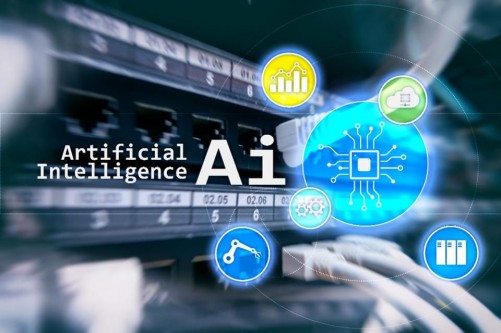The system was developed through research that examined the CT scan of 48 patients. Looking at the scans, the deep learning algorithms gave a ‘diagnosis’ of whether the patient would die within 5 years. The prediction has a 69% accuracy rate, a score ‘similar’ to the accuracy of human doctors. The research, presented in a paper published in the Nature journal Scientific Reports, is the first study of its kind using medical images and artificial intelligence.
The computers analyze huge amounts of data and look for patterns and anomalies much faster than a human can. The researchers are unsure of exactly how the computers analyze this data but the results speak for themselves. It’s not all doom and gloom though. Understanding the likelihood of death can actually help increase your life expectancy. By looking for symptoms such as an enlarged heart and vascular conditions like blood clotting, doctors can then look more closely at possible heart disease or emphysema diagnosis. Over 16,000 image features can be analyzed by the deep learning system that give indicators of a possible disease. While this kind of medical training takes years for humans to comprehensively grasp, the machines have adapted to the task quickly.
Predicting the future of a patient is useful because it may enable doctors to tailor treatments to the individual,' said Dr Luke Oakden-Rayner, a radiologist and PhD student with the University of Adelaide's School of Public Health.
'The accurate assessment of biological age and the prediction of a patient's longevity has so far been limited by doctors' inability to look inside the body and measure the health of each organ.
'Our research has investigated the use of "deep learning", a technique where computer systems can learn how to understand and analyse images.’
The paper didn’t just provide the findings of this research but it is a call to arms for the wider medical research community to encourage the "use of routinely collected, high-resolution radiologic images as sources of high-quality data for precision medicine,". The team is pushing for the use of scans as a regular part of future diagnostic systems.
The use of Artificial Intelligence in medical research and diagnostics is a rapidly growing field. The ability for deep learning computers to rapidly analyze data has the potential to revolutionize diagnostics. While a recent NewsWeek article focussed on the companies and dollars behind the emerging field, Rasu Shrestha, chief innovation officer at University of Pittsburgh Medical Center and chief of the division of radiology informatics thinks the increased use of Artificial Intelligence in medical diagnostics has other benefits. "Health and health care is too human a notion for AI alone to cure it," he says. Other doctors at Pittsburgh agreed that one of the most exciting features of Artificial Intelligence technology is that it should free up doctors' time to spend interacting personally with patients.

Artificial Intelligence systems are becoming the new warriors in disease diagnosis and can even accurately predict when you are going to die. Scientists at the University Of Adelaide in Australia have developed an Artificial Intelligence system that can accurately predict a human's life expectancy.




